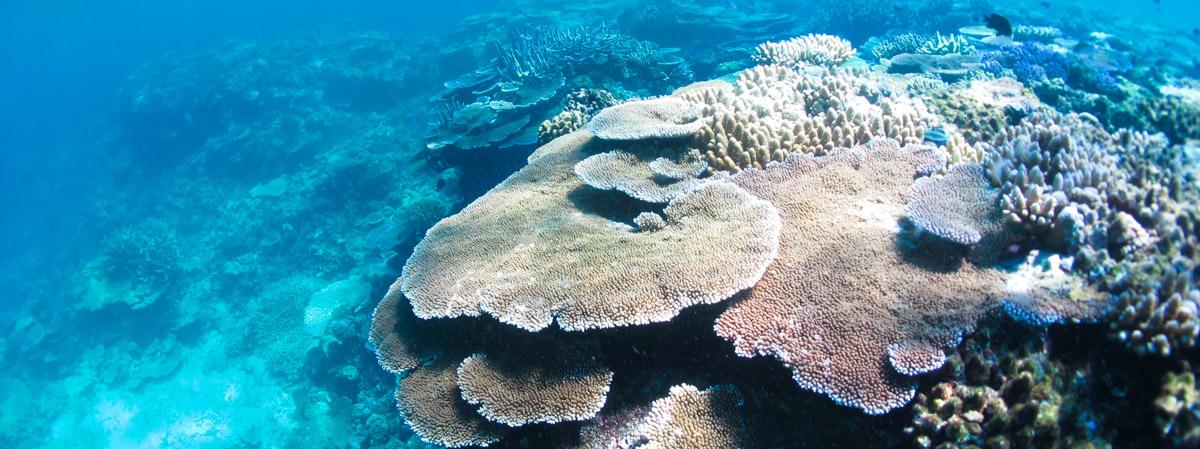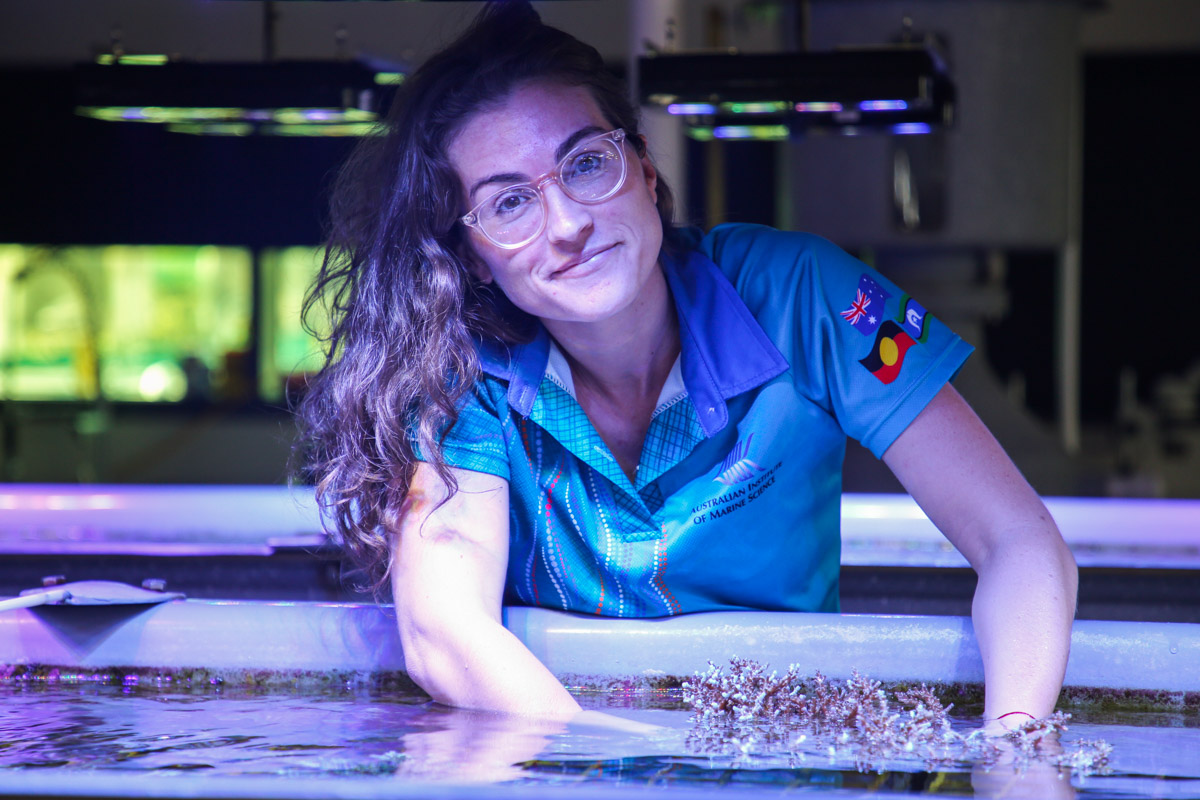Warm water doesn’t affect all corals in the same way. Some hard corals are rather sensitive to heat and will bleach easily, while others are less prone to bleaching under the same conditions. Some of this bleaching tolerance can be attributed to the presence of genes involved in heat tolerance, which can be passed on to future generations.
New techniques are being explored to help fast-track the distribution of these tolerance genes to other areas of the Great Barrier Reef (GBR) in anticipation for future warming. These techniques include the intentional relocation of warm-adapted adults or their offspring to new areas (known as Assisted Gene Flow, or AGF) and the reproductive mixing and deployment of warm-adapted corals with corals of the same species from cooler reefs (known as selective breeding). Offspring produced from reproductive crosses from far northern reefs with reefs in the cooler central GBR are more stress tolerant than offspring from only either the far north or central GBR.
Five species of corals have been used to support successful trials of assisted gene flow in recent years, and the technique is showing great promise.
In 2021, the team will expand the type of coral being trialled to boulder corals (Porites), an important growth for Great Barrier Reef communities. In addition, the team will collect corals from reefs identified as those most likely to harbour heat tolerant corals in the far north via artificial intelligence through machine learning. This approach is a data-driven, efficient way to ensure the corals they collect are heat hardy, which leverages years of selective breeding data collected at AIMS
This research will test whether the offspring may fare better in a changing climate and is an important first step in assessing the effectiveness of Assisted Gene Flow on the GBR.
You may also be interested in:


